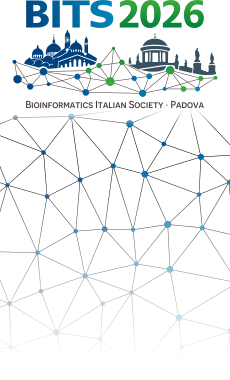First International Workshop From Biology To Concurrency and back
REGISTRATION
Every participant to the workshop MUST register online at the CONCUR registration web page. Early registration fee (not later than July 31) is 45 € per students and 60 € regular. The registration includes access to all sessions of the workshops, informal proceedings, and coffee breaks. The workshop is held at the Faculty of Social and Human Sciences, Universidade Nova de Lisboa, 5 minutes walking from the Gulbenkian Foundation
SUMMARY
In computational theory, several formal approaches make use of biology as inspiration for the development of problem solving techniques. Most of them are taken from complex, inherently concurrent, systems. Some examples of "biological inspired computing", are ant colonies, artificial immune systems, cellular automata, genetic algorithms, membrane computing, neural networks, organic computing, swarm intelligence. On the other hand, concurrency has itself begun to inspire an emerging research area in Biology. Regev and Shapiro indicated in 2002 the Cells-as-Computation metaphor as the "much-needed abstraction for biomolecular systems". Computers and biomolecular systems both start from a small set of elementary components from which, layer by layer, more complex entities are constructed with evermore sophisticated functions. In computational systems biology, the abstractions, tools and methods used to specify and study concurrent and distributed systems can therefore be naturally adopted to model and better understand the complex biomolecular systems. In this workshop we intend to explore this "cross-fertilization" between computational sciences and biology, with a special attention to concurrent models in biology and formal foundations in bio-inspired computing.
INVITED SPEAKER
David Harel, Weizmann Institute of Science, IL
ORGANIZERS
Nicola Cannata and Emanuela Merelli
COmplex SYstem Research Group
Department of Mathematics and Computer Science
University of Camerino
Via Madonna delle Carceri 9
I-62032 Camerino (MC)
Italy
E-mail: (nicola.cannata,emanuela.merelli) [at]unicam [dot] it
WITH THE SUPPORT OF
http://www.litbio.org
http://www.unicam.it
Every participant to the workshop MUST register online at the CONCUR registration web page. Early registration fee (not later than July 31) is 45 € per students and 60 € regular. The registration includes access to all sessions of the workshops, informal proceedings, and coffee breaks. The workshop is held at the Faculty of Social and Human Sciences, Universidade Nova de Lisboa, 5 minutes walking from the Gulbenkian Foundation
SUMMARY
In computational theory, several formal approaches make use of biology as inspiration for the development of problem solving techniques. Most of them are taken from complex, inherently concurrent, systems. Some examples of "biological inspired computing", are ant colonies, artificial immune systems, cellular automata, genetic algorithms, membrane computing, neural networks, organic computing, swarm intelligence. On the other hand, concurrency has itself begun to inspire an emerging research area in Biology. Regev and Shapiro indicated in 2002 the Cells-as-Computation metaphor as the "much-needed abstraction for biomolecular systems". Computers and biomolecular systems both start from a small set of elementary components from which, layer by layer, more complex entities are constructed with evermore sophisticated functions. In computational systems biology, the abstractions, tools and methods used to specify and study concurrent and distributed systems can therefore be naturally adopted to model and better understand the complex biomolecular systems. In this workshop we intend to explore this "cross-fertilization" between computational sciences and biology, with a special attention to concurrent models in biology and formal foundations in bio-inspired computing.
INVITED SPEAKER
David Harel, Weizmann Institute of Science, IL
ORGANIZERS
Nicola Cannata and Emanuela Merelli
COmplex SYstem Research Group
Department of Mathematics and Computer Science
University of Camerino
Via Madonna delle Carceri 9
I-62032 Camerino (MC)
Italy
E-mail: (nicola.cannata,emanuela.merelli) [at]unicam [dot] it
WITH THE SUPPORT OF
http://www.litbio.org
http://www.unicam.it




